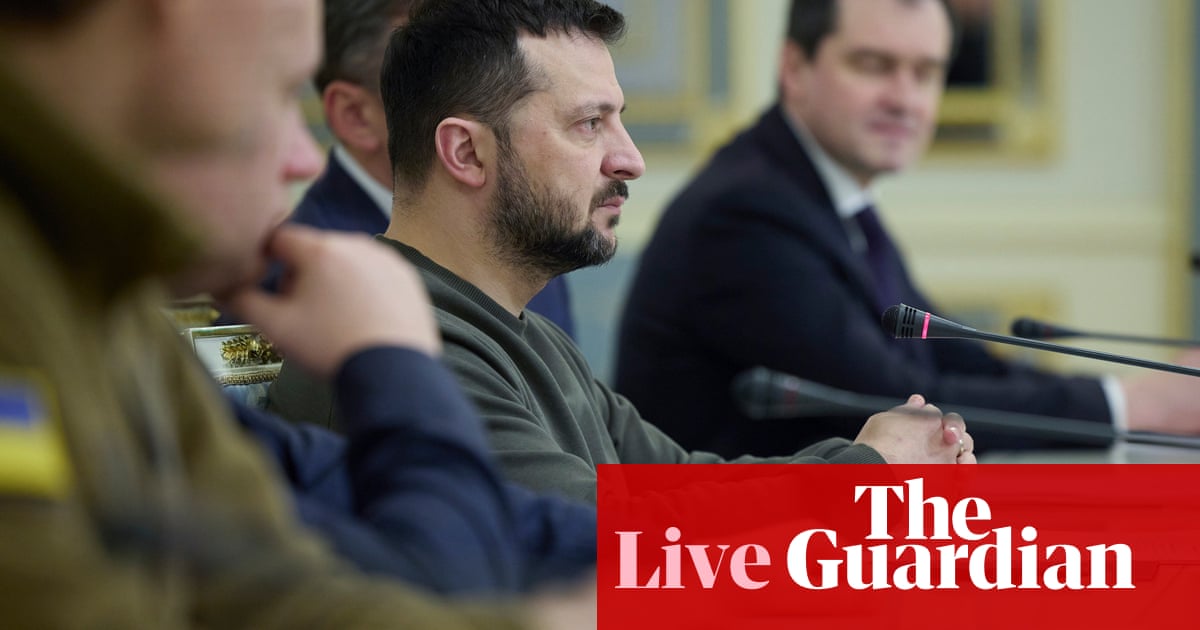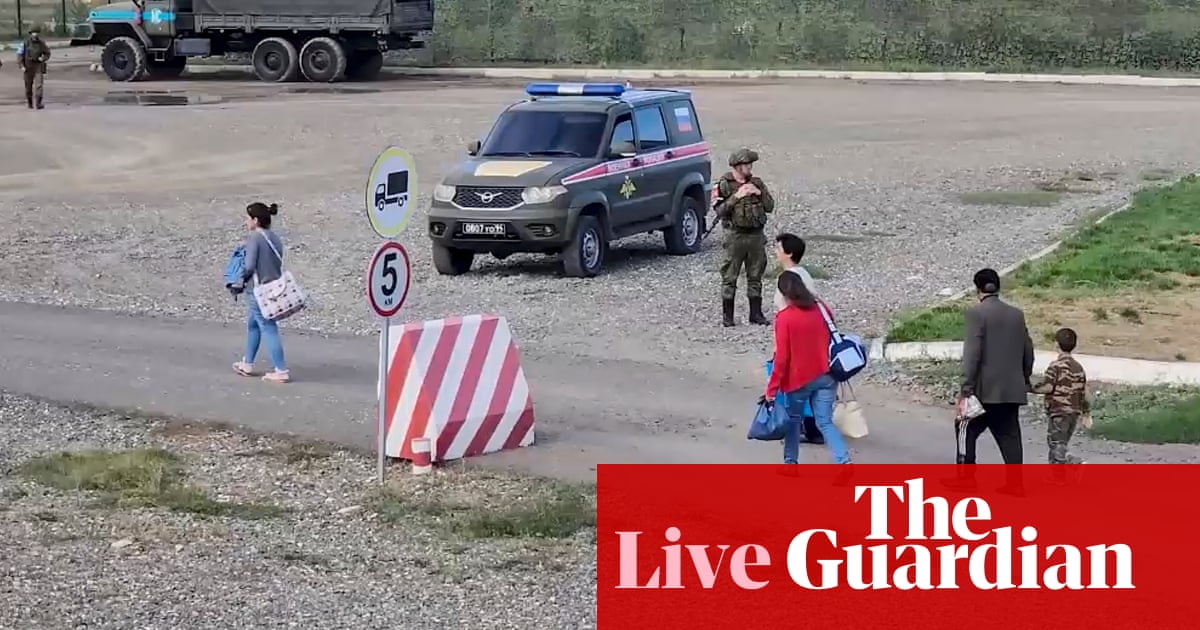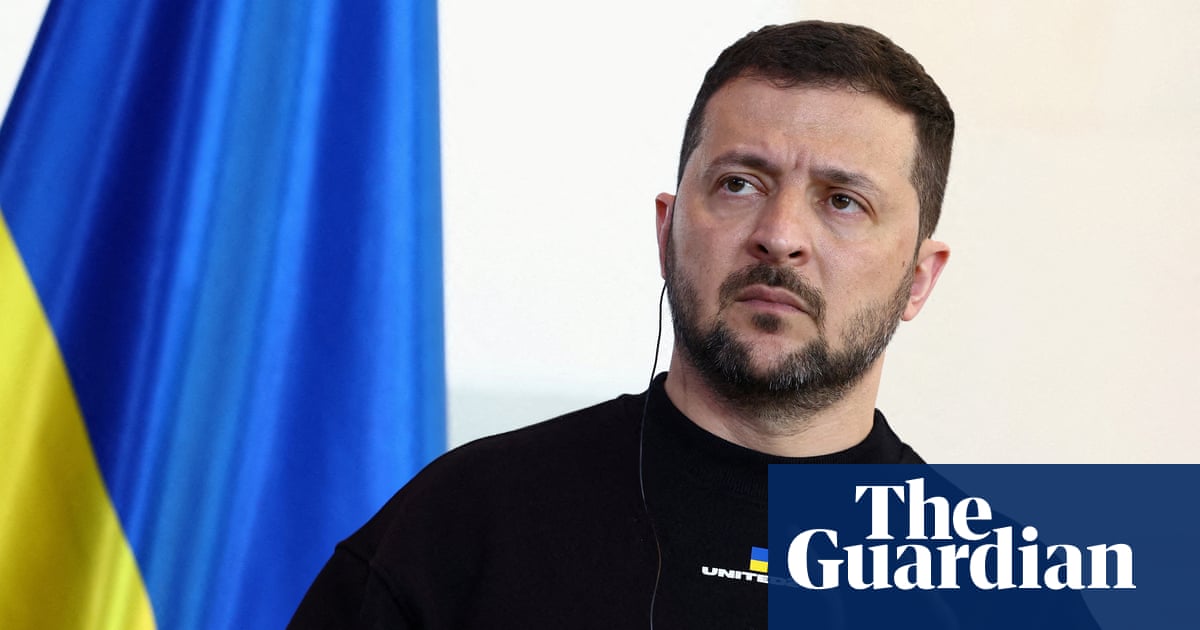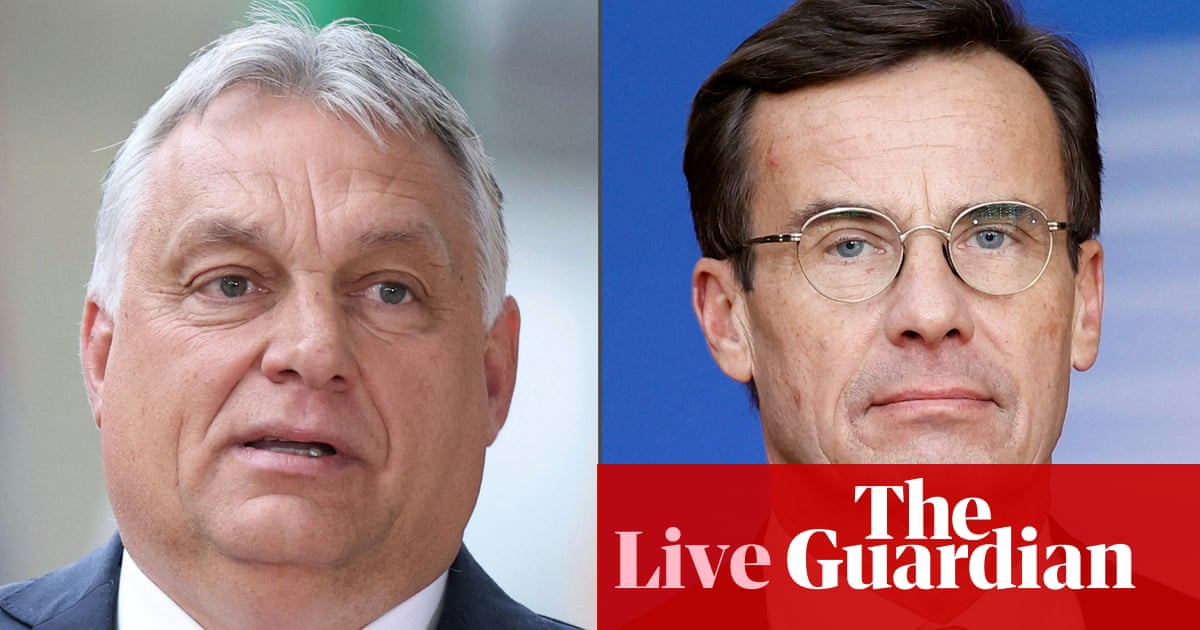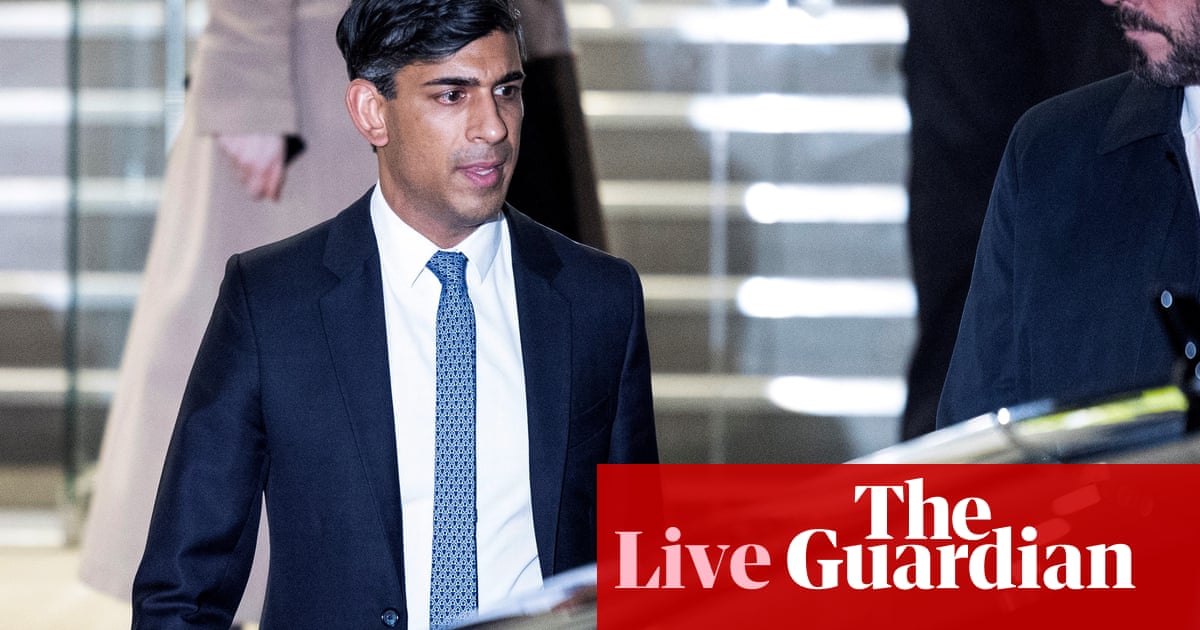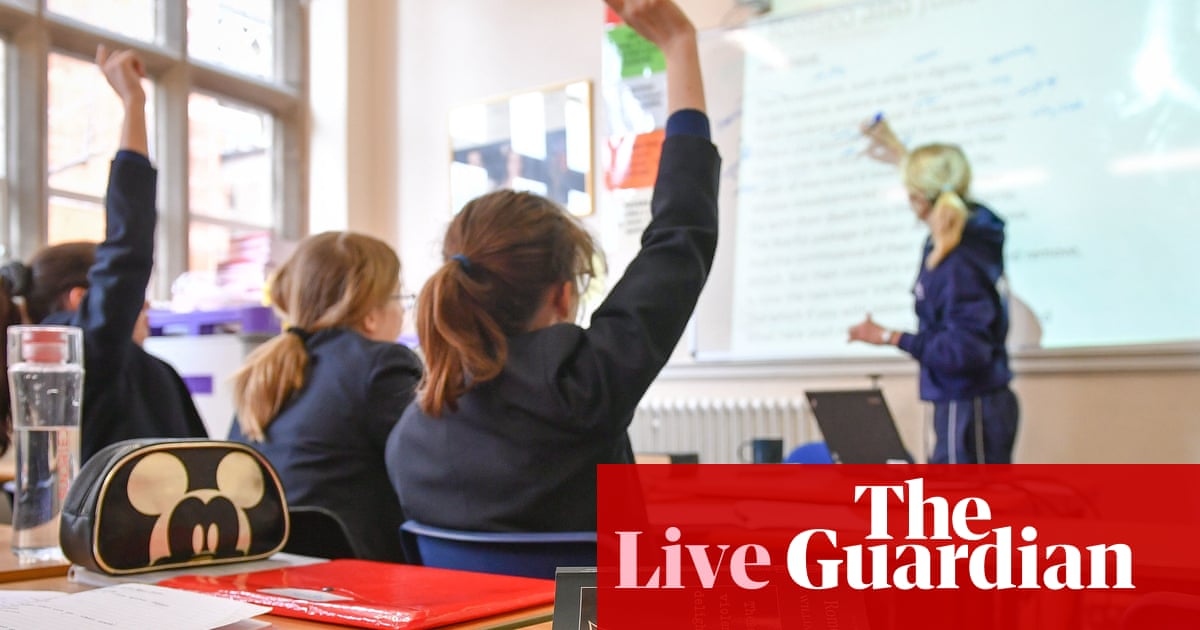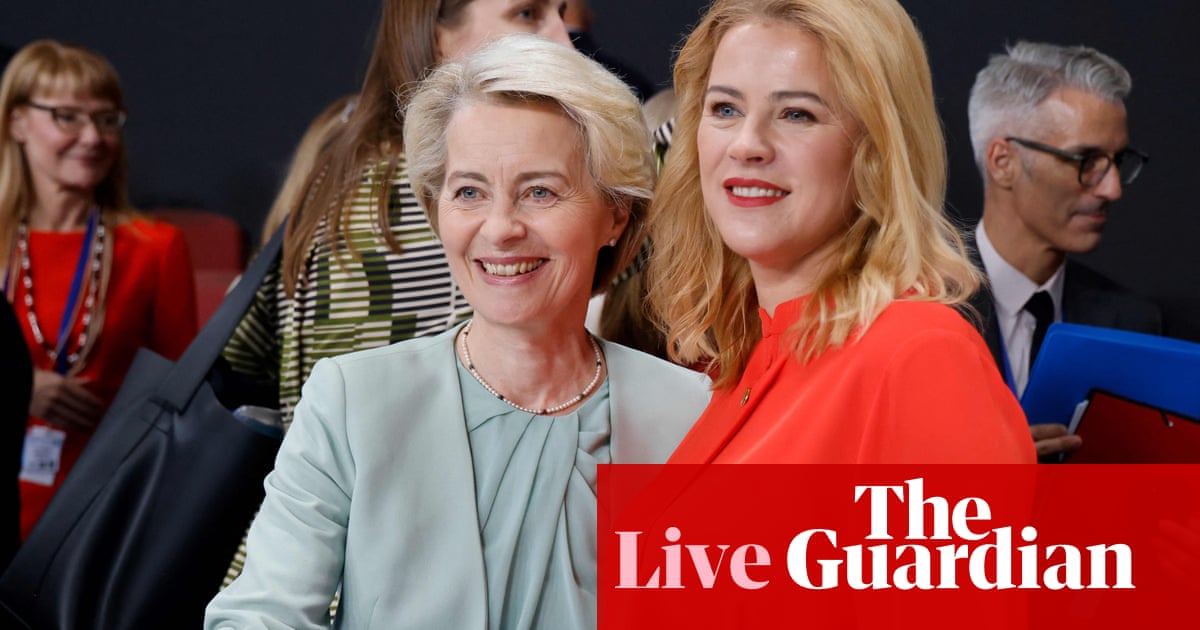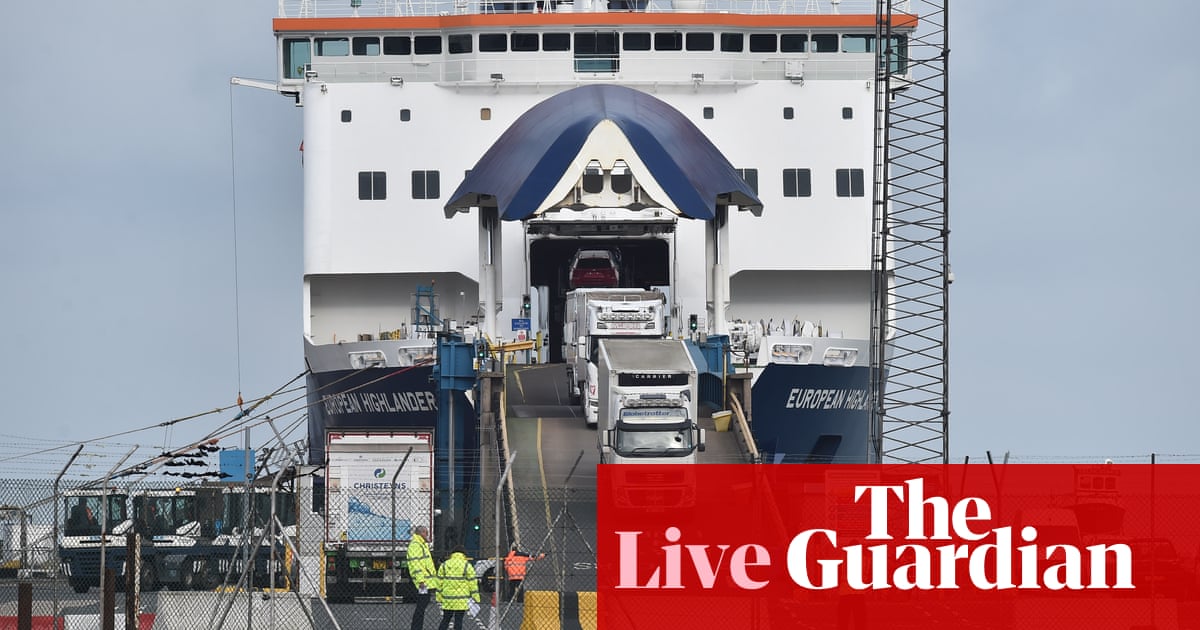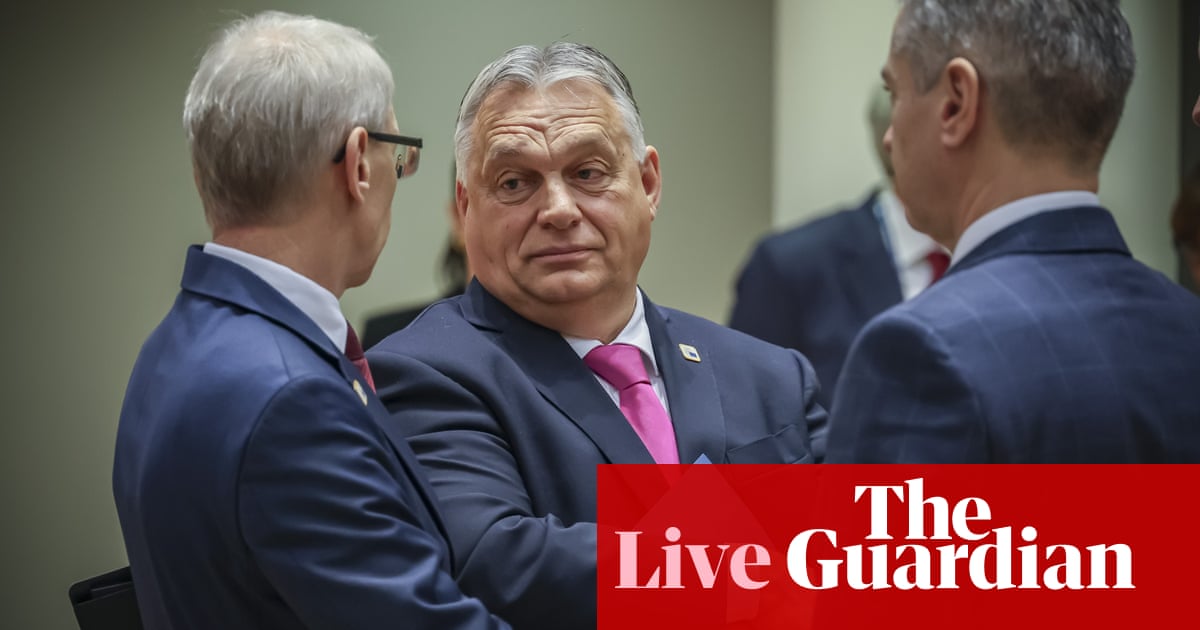
Macron confident Orbán can be persuaded to support funding for Kyiv
The Hungarian prime minister, Viktor Orbán, told European leaders he will not block negotiations on Ukraine’s accession to the EU if Kyiv meets the remaining reforms it has been asked to undertake by next March, the French president, Emmanuel Macron, has said.
“If these rules are met, and I asked him the question, he told me that he would not block, if that were the case. If the seven rules are met, then you will need to be able to open discussions,” Macron told reporters.
He said he was also confident that Orbán would be persuaded in the new year to come on board with the financial aid package for Ukraine, as his decision to block it meant he also blocked fresh funds for his own country, his neighbours and for migration border controls.
Summary of the day
Leaders from the EU’s 27 members met for the second day of a major summit.
Yesterday evening, the leaders reached a historic deal to open accession talks with Ukraine and Moldova.
However, overnight they were unable to reach an agreement on revising the bloc’s budget and on a €50bn package for Ukraine, due to opposition from Hungarian prime minister, Viktor Orbán.
Orbán told Hungarian radio today that he can still stop Ukraine’s accession at numerous points in the long process.
The prime minister hinted he would link extra funding for Ukraine to the unfreezing of more EU funds for Hungary, suspended over rule-of-law concerns.
Estonia’s Kaja Kallas said: “Ukraine will not be left without support.”
The European Council president, Charles Michel, said after the summit that he is “confident” the bloc will “be in a position to fulfil on our promises to support Ukraine with financial means.”
When it comes to the financial package for Ukraine, the European Commission president, Ursula von der Leyen said the commission will use the time until the next summit “to ensure that whatever happens at this next [European Council], we will have an operational solution”.
French President Emmanuel Macron said Orbán must not be allowed to take the EU as “hostage” but that he believed the Hungarian leader would “show responsibility”.
Belgium’s Alexander De Croo said that when it comes to Israel and Gaza, “what should be our objective is that the human suffering should end, on both sides”.
Ireland’s Leo Varadkar said “we now have a clear majority of countries here in the European Union calling for a ceasefire.”
The EU’s 27 leaders “had a strategic debate” on the Middle East and agreed that they will “continue to discuss in the future”.
Michel underscored the EU’s commitment to humanitarian aid and access, as well as a political process.
The German chancellor, Olaf Scholz, has underscored continued support for Ukraine.
He also called his proposal to Hungary’s Viktor Orbán to leave the room during a key decision on Ukraine a “friendly Union proposal”, Reuters reported.
Malta’s prime minister, Robert Abela, said that during the EU leaders’ summit he reiterated a call for an immediate ceasefire in the Middle East.
The summit conclusions have been published.
We didn"t let Hungarians" money be given away, Orbán says after summit
In a post on social media after the dramatic EU leaders’ summit, Hungarian prime minister Viktor Orbán wrote:
“EU summit on Ukraine. We did not allow that Hungarians’ money be given away!”
French president Emmanuel Macron’s press conference has just finished.
He said he was confident Hungary’s Viktor Orbán would sign up to the Ukraine financial aid package in the new year.
He said Orbán’s decision to veto the European budget, of which the Ukraine facility is part, was an act of self-harm, given it meant he was also blocking money to his country.
“I expect from Viktor Orbán in the coming months … [that] they [the Hungarians] behave like Europeans and that they do not take the political progress as hostage.
“We collectively want to believe that he will, beyond posturing, show himself responsible to the extent that he is respected,” said Macron. Both he and German chancellor Olaf Scholz at his press conference said the Hungarian leader’s decision was “respected” as part of the democratic process.
Scholz revealed he told Orbán during the summit that he could criticise the European Commission report on enlargement but he could not link things that were not linked and block the decision on enlargement because of complaints about the commission withholding funds for Hungary.
“He could have blocked. He did not do it. So he let Europe send a positive political signal to Ukraine, which, in this respect, is, I believe, an important element. And he didn’t decide to veto it,” said Macron.
Asked about how the bloc plans to get Hungary on board with giving Ukraine extra funding, European Council president Charles Michel quipped: “It’s a very good question!”
He added:
We are determined to use all the possible arguments, and we’ll engage – with respect … and we know that getting a united decision is always challenging, but this is an important decision that we need to make.
And I think the debate that we had yesterday was also an occasion maybe to better understand what could be some tools, what could be some arguments that we will use in the days, in the weeks to come to prepare the next European Council meeting.
Asked about Hungary’s remaining frozen funding, the European Commission president, Ursula von der Leyen, said:
The moment there is a delivery of the necessary reforms, there is a disbursement.
Addressing the issue of the proposed €50bn package for Ukraine, which Hungary is now blocking, she said:
We are working very hard, of course, to have a result where there is an agreement of 27 member states.
But I think it is now also necessary to work on potential alternatives, to have an operational solution in case that an agreement by 27 – so, unanimity – is not possible.
Macron confident Orbán can be persuaded to support funding for Kyiv
The Hungarian prime minister, Viktor Orbán, told European leaders he will not block negotiations on Ukraine’s accession to the EU if Kyiv meets the remaining reforms it has been asked to undertake by next March, the French president, Emmanuel Macron, has said.
“If these rules are met, and I asked him the question, he told me that he would not block, if that were the case. If the seven rules are met, then you will need to be able to open discussions,” Macron told reporters.
He said he was also confident that Orbán would be persuaded in the new year to come on board with the financial aid package for Ukraine, as his decision to block it meant he also blocked fresh funds for his own country, his neighbours and for migration border controls.
Commission to ensure "operational solution" on budget after Orbán blocked Ukraine aid, von der Leyen says
The European Commission president, Ursula von der Leyen, said in a press conference after the leaders’ summit that “yesterday’s decisions show that the European Union is living up to its promise”.
In a world that is shaken by multiple crises, it’s an investment in stability, it’s an investment in security of our continent, but of course it’s also an investment in prosperity for our continent, and it’s a big investment in democracies that stand tall and united.
Speaking about the proposed revision of the EU budget, von der Leyen noted that the current long-term budget, which runs from 2021 until 2027, was designed before the current crises facing Europe.
The first priority is Ukraine, followed by migration, boosting competitiveness and addressing natural disasters and humanitarian crisis, she said.
She noted that 26 countries agreed on the proposal on the table. “This is a good result,” she said, adding that tough choices were required.
Addressing Hungary’s lack of support for the budget, von der Leyen said the Commission will use the time until the next summit “to ensure that whatever happens at this next [European Council], we will have an operational solution.”
Ireland says EU money will "continue to flow" to Ukraine despite Orbán decision to block aid package
Leo Varadkar, the prime minister of Ireland, said funding “will continue to flow” to Ukraine despite the decision by Viktor Orbán to block a decision to approve a €50bn aid package for the next four years.
It’s not a disaster in the sense that we can now roll over the loans to Ukraine. The money will continue to flow to Ukraine for the next couple of months. And hopefully when we come back here in January or February we’ll be able to agree a package of financial support for Ukraine.
On the Middle East, he said there was no a “clear majority” for a ceasefire in but they had agreed at this point not to draw up conclusions or a declaration and they would return to the subject in the new year.
I think if we’d tried to have written conclusions we would have been here for many, many hours. And probably have only come up with compromise wording that nobody would have been happy with.
But I think it is very clear that there was a very good discussion, a strategic discussion on the Middle East.
The room has changed since we last discussed this back in October.
There is now a very clear majority in the European Union for humanitarian ceasefire for an end to the conflict.
Charles Michel also addressed the leaders’ discussion on the situation in the Middle East.
The European Union needs to be committed and involved, as far as possible, in trying to have an impact in what is happening.
He added:
There is strong unity around the guarantee of security for Israel. Israel has the right to its security, it has the right to exist. And that’s why on repeated occasions we have continued to condemn Hamas’s terrorist attacks and the choice of Hamas to use civilians as human shields.
We urge and call upon Hamas to release unconditionally the remaining hostages – immediately.
And we also repeat that the right to defend itself in Israel has to be carried out in compliance with international law.
And we reiterate again also that humanitarian support and aid must be guaranteed.
Among some of the members of the European Council, there are different feelings and sentiments about the idea of a pause, a humanitarian pause, supported by others, and a humanitarian ceasefire, supported by others.
But the essential points, I think, are linked to two points: joint commitment to further support and offer support on humanitarian aid, and to ensure that humanitarian access for aid is open … Another essential point is not just to reiterate the traditional standpoint of the EU, but its commitment to the political process for a two-state solution.
And that means that the European Union countries have to work in an accelerated way to build upon this … Some people said that we should, quite rightly, condemn the increasing attacks led by settlers against Palestinians in the West Bank.
The leaders also talked about the “next day”, he noted.




